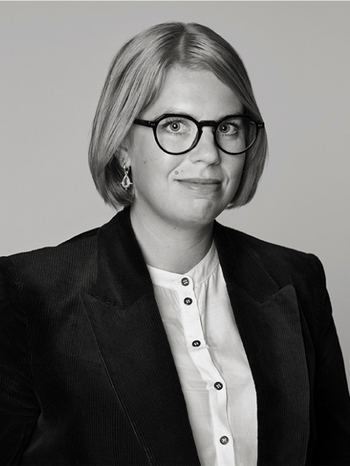Joan Miró
"Femme"
Signed and numbered Miró 2/2 (on the right side), and indistinctly stamped with the foundry mark of Fonderie Parellada, Barcelona (on the back). Sculpture, bronze with brown patina
Height 16 cm. Conceived in 1969. Mounted on white marble base, height 7.5 cm.
Provenance
Private collection, acquired circa 1985.
Christies, Impressionist and modern day sale, 5th of May, 2004, cat. no. 312.
Galerie Lelong, Paris.
Private collection, bought from the above 2009.
Literature
A. Jouffroy and J. Teixidor, "Miró sculptures", Paris, 1973, p. 201, no. 143 (illustrated).
A. Jouffroy and J. Teixidor, "Miró sculptures", Paris, 1980, p. 235, no. 143 (illustrated).
Daniel Lelong, Successio Miró, "Joan Miró. Sculptures. Catalogue raisonné 1928-1982", cat. no. 155.
More information
Joan Miró was one of the very few artists who mastered all art forms - painting, murals, graphics, costume design, poetry, ceramics, and sculpture. Apart from his compatriot Picasso, no other artist in the 20th century has shown such versatility and inventiveness across such a wide spectrum of media. To realize his creative vision, Miró made sure to be involved in every aspect of his sculpture production.
Miró did not start casting sculptures in bronze until the 1940s, but he began working with three-dimensional objects at the age of 19. Miró's grandson, Joan Punyet Miró, writes about the artist's experience in an essay and quotes his grandfather: "My interest in sculpture really began when I was nineteen... Francesc Galli was a remarkable teacher, and he gave me an exercise so that I would learn to see form. He blindfolded me and placed objects in my hands, then asked me to draw the objects without having seen them."
Painting is the medium that Miró is primarily known for and that he devoted himself to for most of his lifetime. However, he himself felt that what he sculpted was less conventional than his paintings. "It is in sculpture that I will create a truly phantasmagoric world of living monsters; what I do in painting is more conventional," he is said to have said.
"Femme" was conceived in 1969 and can be seen as an illustration of Miró's metamorphic understanding of what he called humanity's "true reality."





























